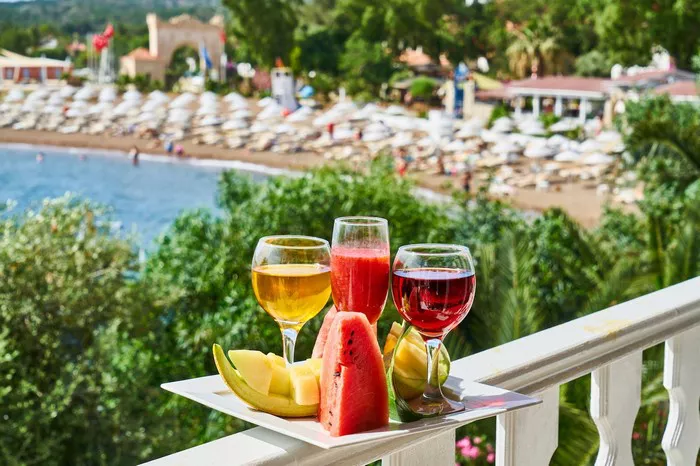What are the basic cocktail ingredients that form the cornerstone of mixology, the art of crafting delightful drinks? This question lies at the heart of every aspiring bartender and home enthusiast’s journey into the world of cocktails. Understanding these essential components is akin to mastering the alphabet before diving into literature. In this comprehensive guide, we delve into the key elements that define the essence of cocktail making, from spirits to mixers, and everything in between.
Spirits: The Backbone of Cocktails
What are the basic cocktail ingredients without spirits? These alcoholic beverages form the foundation upon which countless cocktail recipes are built. The most common spirits include vodka, rum, gin, tequila, whiskey, and brandy. Each brings its unique flavor profile, ranging from the clean neutrality of vodka to the rich complexity of aged whiskey. When selecting spirits for cocktails, quality matters. Opt for well-crafted, reputable brands to ensure the best results in your drinks.
Liqueurs: Adding Depth and Flavor
Beyond spirits, liqueurs play a crucial role in enhancing the complexity and depth of cocktails. These sweetened spirits are infused with various flavors, ranging from fruits and herbs to spices and botanicals. Examples of popular liqueurs include triple sec, vermouth, amaretto, and Campari. Liqueurs not only contribute distinct flavors but also provide sweetness and balance to cocktails. When experimenting with cocktails, consider incorporating different liqueurs to add layers of flavor to your creations.
Mixers: Balancing Act
Mixers serve as the bridge between spirits and other ingredients, harmonizing flavors and textures to create well-balanced cocktails. Common mixers include juices (such as citrus, pineapple, and cranberry), sodas (like tonic water and cola), and syrups (such as simple syrup and grenadine). Additionally, vermouth and bitters are essential mixers used to add complexity and depth to classic cocktails like the Manhattan and the Old Fashioned. Understanding the role of mixers is crucial for achieving the desired taste and consistency in cocktails.
Fresh Ingredients: The Essence of Vibrancy
Fresh ingredients are the secret weapons of master mixologists, infusing cocktails with vibrant flavors and aromas. Citrus fruits, such as lemons, limes, and oranges, are particularly prized for their ability to brighten cocktails with their tangy acidity. Fresh herbs like mint, basil, and rosemary add depth and complexity to drinks, while fruits like berries and melons offer sweetness and freshness. Incorporating fresh ingredients not only elevates the taste of cocktails but also enhances their visual appeal.
Sweeteners: Balancing the Bitter
Sweeteners play a vital role in balancing the flavors of cocktails, counteracting the bitterness of certain spirits and mixers. Common sweeteners used in cocktails include sugar, honey, agave nectar, and flavored syrups like raspberry or vanilla. Simple syrup, a mixture of equal parts sugar and water, is a staple sweetener in many cocktails due to its ability to dissolve easily and integrate seamlessly into drinks. When adding sweeteners to cocktails, it’s essential to do so judiciously, ensuring a harmonious balance of flavors.
Garnishes: The Finishing Touch
Garnishes are the final flourish that adds visual appeal and aromatic complexity to cocktails. From citrus twists and cocktail cherries to herbs and edible flowers, garnishes not only adorn drinks but also contribute to the overall sensory experience. The choice of garnish often reflects the flavor profile of the cocktail, with complementary ingredients enhancing the drink’s aroma and taste. Experimenting with different garnishes allows bartenders to personalize cocktails and elevate them to new heights.
Ice: The Unsung Hero
Ice may seem like a simple ingredient, but its role in cocktail making is indispensable. Beyond chilling drinks, ice serves to dilute cocktails, tempering the intensity of spirits and mixers while enhancing their texture and mouthfeel. Different types of ice, such as cubed, crushed, and shaved, offer varying degrees of dilution and chilling, allowing bartenders to tailor cocktails to their desired specifications. Proper ice management is essential for maintaining the integrity of cocktails and ensuring a consistent drinking experience.
Techniques: Mastering the Craft
Beyond ingredients, mastering the art of mixology requires proficiency in various techniques that dictate the texture, flavor, and presentation of cocktails. From shaking and stirring to muddling and layering, each technique imparts its unique characteristics to drinks. Shaking cocktails with ice aerates the mixture, creating a frothy texture, while stirring yields a smoother, more delicate result. Muddling fresh herbs and fruits releases their essential oils and juices, infusing cocktails with their vibrant flavors. Understanding and honing these techniques are essential for aspiring bartenders looking to craft exceptional cocktails.
Conclusion: Crafting Cocktail Excellence
In conclusion, what are the basic cocktail ingredients that define the world of mixology? From spirits and liqueurs to mixers and garnishes, each component plays a vital role in shaping the flavor, texture, and presentation of cocktails. By understanding the characteristics of these ingredients and mastering various techniques, bartenders and enthusiasts alike can unlock the boundless possibilities of cocktail making. Whether concocting classic recipes or inventing innovative creations, the journey into the realm of cocktails is as rewarding as it is limitless. Cheers to the art of mixology and the endless adventures it holds.


